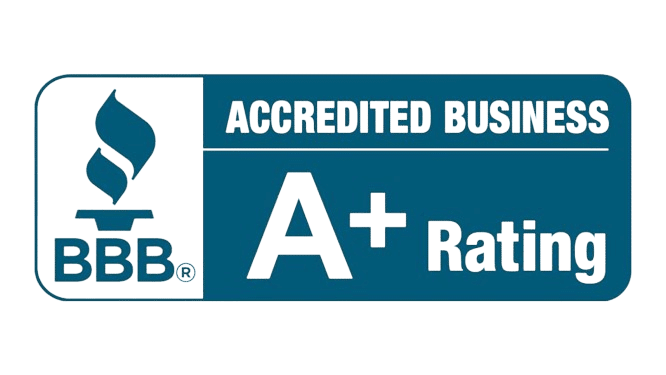Why JG Wentworth?
Why JG Wentworth?
A Legacy of Expertise
More than 30 years of experience in the financial industry
A Trusted Partner
We've connected over 1 million people to financial products
A Renown Brand
Helping customers get cash is what we're known for
Simple Process

Answer Questions
No impact to your credit score

Select Offers
Choose the offer that suits you best

Get Funds
Once approved, access your funds quickly

Home equity agreements (HEA), also referred to as home equity investments (HEI) or equity-sharing contracts, allow homeowners or buyers to access part of their home equity in exchange for a lump-sum cash payment from an investor. These agreements provide a way to convert a portion of a home’s equity into cash or can assist homebuyers in securing a down payment during the purchasing process.
In exchange for the upfront payment, investors gain a share of the home’s future value. When the home is sold—or when the agreement term concludes—the investor receives their agreed-upon share from the proceeds. If the home's value rises, the investor’s return increases; if the value declines, the investor shares in the loss.
Unlike traditional loans, home equity agreements involve no interest or monthly payments. Instead, the homeowner settles the agreement by returning the initial investment along with a percentage of the change in the property’s value. In some cases, the investor’s share is calculated based on the total property value at the time of sale.
These agreements typically have terms lasting 10 to 30 years, with the settlement required either upon sale of the home or at the end of the term. Homeowners may also buy out the investor’s stake at any point. Shared equity agreements appeal to investors seeking real estate exposure with lower risk and potential tax advantages. Many established firms, often backed by institutional investors like pension funds, now offer these products to homeowners.

In a home equity agreement, the homeowner receives a cash payment from an investment company in exchange for a percentage of the home’s future value changes. During the span of the agreement, typically 10 to 30 years, no regular payments are required. The homeowner repays the initial investment and the investor’s share of any appreciation (or depreciation) in the home’s value at the end of the agreement or when the home is sold.
For example, if a homeowner receives $25,000 in exchange for 35% of their property’s future value changes, they’ll settle the agreement based on the home’s performance. If the home appreciates by $100,000, the homeowner owes the initial $25,000 plus $35,000 (35% of the gain), totaling $60,000. If the home value remains unchanged, only the initial $25,000 is repaid. If the home depreciates, the investor shares in the loss, reducing the repayment amount.
Home equity agreements can also be used to access equity without selling the home. For instance, a homeowner with $200,000 in equity could receive $50,000 in cash for a 25% share of appreciation over a set term. At the end of the term, the repayment depends on the home’s value. If the property appreciates by $50,000, the homeowner would repay $62,500, including the initial investment and 25% of the gain. Depreciation scenarios reduce the repayment amount but can pose financial challenges depending on the homeowner’s situation.
Carefully analyzing potential outcomes and market trends is essential before committing to an agreement. Tables and calculations, like those in these examples, can help assess various scenarios and ensure the decision aligns with financial goals.

Pros of Home Equity Agreements
- No Monthly Payments: Unlike loans or lines of credit, HEAs provide cash without requiring ongoing payments, making them appealing for those seeking liquidity without additional financial strain.
- Access to Equity Without Debt: HEAs allow homeowners to unlock their home equity without increasing their debt-to-income ratio, which can be advantageous for maintaining financial stability or qualifying for other financing.
- Flexibility in Use: The funds can be used for any purpose, such as home improvements, debt consolidation, education, or other personal needs.
- Risk Sharing: If the property’s value decreases, the homeowner may owe less to the HEA provider, as the repayment is tied to the home's future value.
- Alternative for Those with Limited Options: HEAs may be available to homeowners who do not qualify for traditional loans due to low credit scores, high existing debt, or limited income.
Cons of Home Equity Agreements
- Equity Requirements: To qualify for an HEA, you typically need at least 25% equity in your home.
- Loss of Full Ownership Gains: Since HEAs involve sharing future home appreciation, homeowners may receive less of their property’s value if they sell during a market upswing.
- Obligation to Settle: These agreements require the homeowner to either sell the home or repay the provider’s share when the term (10-30 years) ends.
- Complex Terms: The legal and financial intricacies of HEAs may be difficult to fully understand.
- Reduced Equity: Selling a portion of your home’s equity means you’ll have less equity available for other needs, such as securing future loans or passing down wealth.
Featured Personal Loan Articles
Understanding Credit Scores
Explore the nuances of credit scores, delving into factors influencing them and actionable strategies to manage and improve your credit health. This comprehensive guide offers insights for navigating the intricate world of credit scoring effectively.
What is a Personal Loan?
Personal loans, a popular financial tool, offer individuals access to funds with or without collateral. These loans, provided by banks or online lenders, cater to diverse needs like debt consolidation, home improvements, or unexpected expenses and do not require any collateral. Borrowers receive a lump sum and repay in fixed monthly installments over a specified term, typically ranging from one to seven years. Interest rates, based on creditworthiness, can be fixed or variable, impacting the total repayment amount. While they provide financial flexibility, understanding terms, fees, and the impact on credit is crucial for responsible borrowing and effective financial management.
Basics of Credit Inquiry
Credit inquiries, categorized as hard or soft, involve the examination of credit reports. While hard inquiries impact scores, soft inquiries are harmless, offering insights for personal credit monitoring without affecting credit health
Securing Loans Without a Cosigner
If you’ve no credit, a limited credit history, or poor credit, certain lenders may mandate a cosigner for loan applications. Introducing a cosigner with a sound credit history and high credit score could fortify your application, increasing eligibility for specific financing options. However, seeking a cosigner poses drawbacks, and some individuals lack someone willing or eligible to fulfill this role. If you find yourself without a cosigner or if you aim to secure a loan independently, this guide aims to equip you with strategies to achieve this objective.





